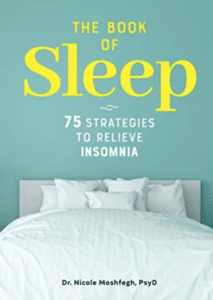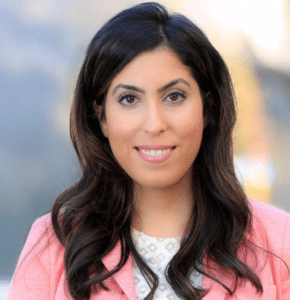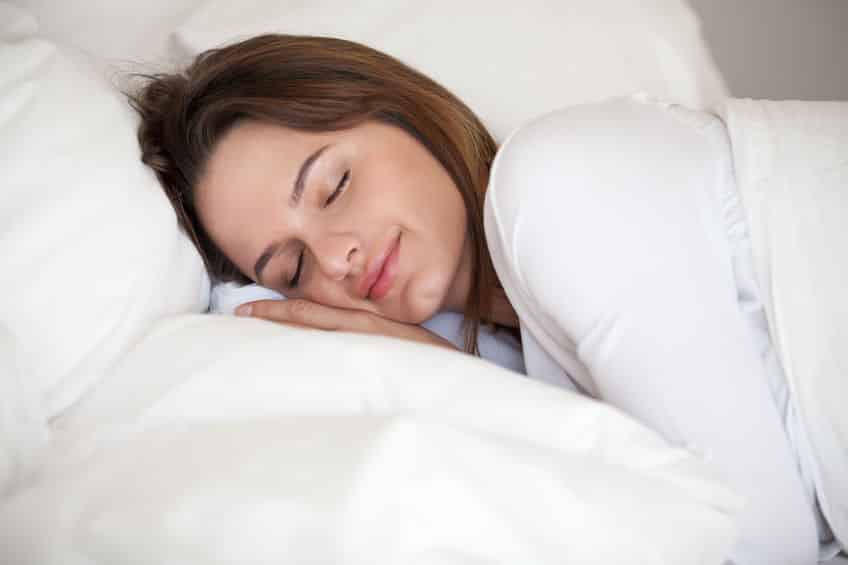Though it may seem like an understatement, sleep is a huge part of our lives. In fact, we spend about one-third of our lives either sleeping or attempting to do so. But for anyone who’s ever struggled with insomnia or lack of sleep, the attempting bit may be easier said than actually nodding off. Making matters worse, the options to correct poor sleep are rarely appealing, often involving highly addictive medication that feature a slate of unwanted side effects. Of course, Dr. Nicole Moshfegh, clinical psychologist and insomnia specialist, believes the best way to combat lack of sleep is to do it naturally. While that may seem too good to be true, there’s reason to be hopeful. Dr. Moshfegh recently spoke with WellWell on her new book, The Book Of Sleep: 75 Quick & Easy Strategies to Relieve Insomnia and natural secrets to help us reclaim our sleep.
The Book Of Sleep offers 75 singular tips and strategies towards combating insomnia, is there a through line between them all? What is your general approach to sleep management?
First, I think it’s important to tackle insomnia symptoms with fact-based methods. That’s why every strategy in the book is based on up to date scientific findings. Overall, I use what’s called cognitive behavioral therapy, which is the most natural way of approaching sleep management. There’s no medication involved and therefor no harmful side effects. But, most importantly, it’s backed by research and scientific studies that have shown over 80 percent of people seeing improvement to their sleep.
What does this approach entail physically?
It’s all about modifying behaviors that have both caused insomnia and developed out of it that are nonetheless causing it to persist. The approach involves reflecting on symptoms to determine the factors that are making the situation worst and causing insomnia to continue.
How do you go about discovering these factors, as a doctor?
First, I make sure that I’m doing a really thorough assessment of the patient and understanding their background and history. Then I have them record their sleep using a sleep diary. It sounds simple but it gives me an opportunity to get a baseline of what the person’s sleep is like to see what patterns are coming up and from there, we can come up with a solution. This is the part where we begin to modify the behaviors and fight the anxiety. A lot of people start to experience anxiety around sleep, so cognitive adjustments can go a long way to challenge anxious thoughts about sleep to reduce those symptoms so there’s not so much pressure. Ultimately, the more pressure we put on sleep, the less likely it is to happen.
I think that is an issue a lot of people deal with, wherein sleep perpetuates this vicious cycle of worrying about needing to sleep and therefore, sleeping less and that can impact so much in our lives. Obviously, sleep is important but what are some misconceptions about the impact sleep can have on us mentally and physically, beyond just feeling tired and groggy?
Absolutely. Sleep is important to our mental and physical health but what happens all too often is people who are insomniacs tend to overemphasize how important sleep is and that’s what contributes most to halting sleep. By putting too much pressure on themselves to sleep, they create the very anxiety that causes them not to. Look, sleep is important but it’s not the most important thing in the world. I think that’s what people miss.
There are other things that are also important to our health that we should be keeping track of and making sure we’re on top of but focusing all of our energy on sleep is going to be counterproductive, especially when you’re experiencing insomnia symptoms. Often people won’t have a good night of sleep then immediately think because of that they’re going to have a terrible day, they’re not going to be able to get anything done, and they’re going to make mistakes all day. But in reality, that’s the absolute worst-case scenario and it’s likely never that bad after one lost night unless you manifest it to be. Sure, it may be an unpleasant day but it’s just another day.
Something you mention in the book that I found really interesting was the importance of hydration on sleep patterns. What impact does that have?
Sure, I mean, if you’re too thirsty during the day you’re going to be even thirster at night when you’re trying to sleep. Then you may drink more water right before bed and that, of course, will cause you to get up more frequently during the night to use the bathroom. And if you don’t drink water right before bed, you may get up in the middle of the night to drink water. This all disrupts your sleep. Beyond that, hydration factors into overall health and wellbeing immensely, which is directly tied to health sleep.
Is that also why The Book Of Sleep advises against caffeine?
Well, mostly I say to limit caffeine because it keeping you awake and alert. But it can honestly dehydrate you quite a bit as well so that might cause you to potentially drink more water to compensate before bed but it depends on how much caffeine you’re really consuming. I’d recommend that after lunch is probably the time where you should cut off all caffeine intake or at least limit it a bit so that it’s not causing you to be awake and experiencing that caffeine crash.
Similarly, can you speak a bit on the negative role that napping can have sleep?
Oh, sure. One of the most controlling factors towards our sleep is the sleep drive. Essentially, it just indicates that the longer we’re awake, the sleepier we’re going to feel. And any time we nap or even dose off for a couple of seconds, it reduces the sleep drive. So if were napping for long periods or if we’re napping closer to bedtime in the evening, that’s really going to reduce the sleep drive. Then by the time we want to start getting ready for bed, we’re not going to have enough sleep drive built up to fall asleep and stay asleep.
The book came out last October, just a few months before the COVID pandemic and subsequent lockdown began but it has obviously come at a perfect time. The New York Times, among others, has reported extensively on the rise of insomnia and sleep related issues over the last 10-plus months due to various widespread anxieties. Are there any strategies in the book that are uniquely beneficial towards those who may be suffering insomnia for the first time due to either isolation or anxiety associated with the pandemic?
I think what would be most helpful would be to establish a few anxiety management strategies and selfcare practices. For example, using mindfulness can be hugely beneficial. Engaging in deep breathing and maintaining regular exercise, these can be really helpful. Some other strategies in the book are writing exercises. Especially, if you don’t have the ability or means to attend regular therapy or if you’re in a situation where you can’t talk to or see people all that often. At the very least, writing about your worries and what’s on your mind can help empty your brain so that you’re not thinking about it as much as you prepare for sleep. It can also help you regain control by giving you an outlet to problem solve and develop compassion for yourself.
 About Dr. Nicole Moshfegh
About Dr. Nicole Moshfegh
Dr. Nicole Moshfegh is a clinical psychologist, an Attending Psychologist at the David Geffen School of Medicine at UCLA, an Adjunct Professor at Pepperdine University, and author of The Book Of Sleep: 75 Quick & Easy Strategies to Relieve Insomnia. Dr. Moshfegh has published and presented at conferences in the areas of insomnia, well-being, resilience, multicultural competence, and mindfulness-based interventions. She maintains a private practice in Los Angeles, California.
Learn more at www.drnicolemoshfegh.com













